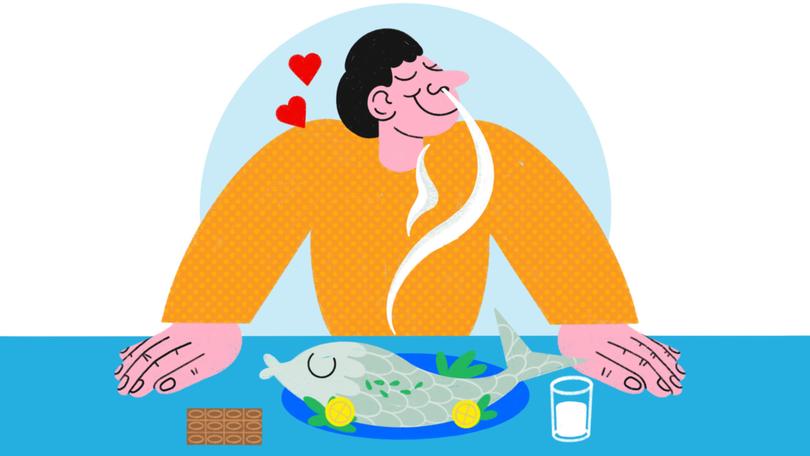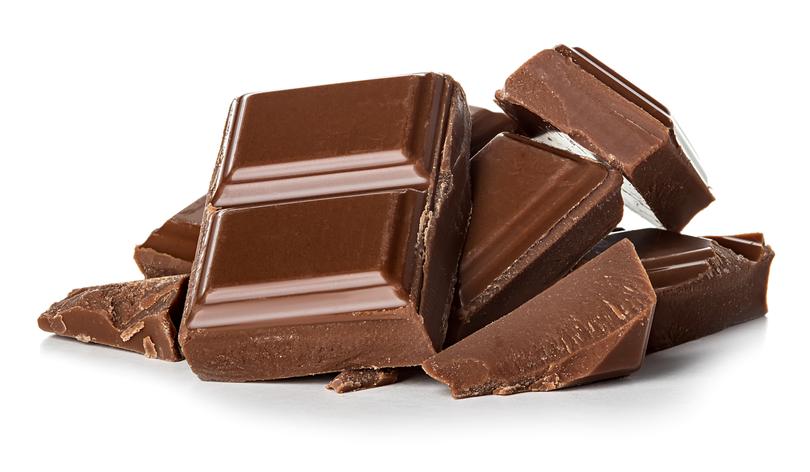SARAH DI LORENZO: What our body actually needs when we crave specific foods
SARAH DI LORENZO: Cravings can also be about what your brain wants rather than what your body needs.

We have all experienced a food craving, that intense urge to eat something specific and not to just combat that feeling of hunger.
Cravings are common and we can experience them for many reasons including fatigue, hormones, stress, dehydration, low blood sugar, protein cravings, sugar addictions, poor diet, vitamin deficiencies, sleep deprivation, emotions, boredom, and pregnancy. Cravings can also be about what your brain wants rather than what your body needs.
Cravings can be related to a deficiency, hunger or low energy but if you’re a healthy weight, sleeping and eating well, managing stress, hydrated, fit and still having cravings there is a chance they could also be nutritional.
Sign up to The Nightly's newsletters.
Get the first look at the digital newspaper, curated daily stories and breaking headlines delivered to your inbox.
By continuing you agree to our Terms and Privacy Policy.There are many different types of food cravings. One of the most common is salt and searching for salty foods such as hot chips and crisps. This could be linked to low levels of electrolytes, stress, or dehydration. Symptoms include a headache or just feeling unwell, plus concentration could be a challenge.
The solution is to increase your water intake and opt instead for fruit, vegetables, nuts and seeds. Also, check your medications as some have a diuretic effect.
Chocolate is one of the biggest cravings I see. Pre-menstrual women, people over-exercising and tired all crave chocolate.

Chocolate is an excellent source of magnesium, which the body needs when over-exercising or to help with cramping including restless leg syndrome.
Opt for 90 per cent chocolate or, alternatively, look for magnesium-rich foods such as leafy greens, nuts, legumes and whole grains. Chocolate cravings could be connected to low mood as the body looks for serotonin, our happy hormone. It could also reflect low iron levels and chocolate does contain a small amount of iron but it’s not easy for our bodies to access.
Carbohydrate cravings indicate low energy. Carbohydrates are our macronutrient for energy but they can also mean your blood sugar is fluctuating. Opt for complex carbohydrates such as oats, brown rice and sweet potatoes plus whole grain products and lots of fruit and vegetables rather than white bread, biscuits, pastries and white pasta.
Protein is a common craving. You can tell if you are protein deficient by weak hair, nails as well muscle loss. Make sure you are having three servings a day of white meat, red meat, eggs or plant-based sources such as legumes.
If you’re craving milk, this could be because you are thirsty but you may also need calcium for bone health. Cheese cravings could mean you need some Omega 3, with key signs being low mood and dry skin. Another Omega 3 deficiency craving is when you are craving fish, in particular fatty fish such as salmon.
An interesting craving is vinegar, which could mean you have low stomach acid. When it comes to wanting some cake, it is most likely you are after a sugar hit and looking for some energy. The solution is to drink some water and grab something high in protein such as nuts, a boiled egg, yoghurt or seeds that will curb that craving.
Fruit cravings are quite common and mean you most likely need vitamins, fibre and minerals but also you could be dehydrated, have low blood sugar, be hormonal or need some energy.
One of the biggest cravings of all is sugar and the one many people really struggle to control. Sugar cravings most likely mean low energy but could also be related to gut health and gut bacteria. The solution is to eat fruit, drink water or try some yoghurt.
Then there is the time-of-day cravings, other than the morning coffee, at night time the craving is for something sweet. I am yet to meet someone craving a boiled egg at night. This craving can either be you fancy something sweet and looking for a dopamine hit but it is more likely your body is looking for energy for serotonin, a precursor for our sleep hormone melatonin.
The key to understanding cravings is to take a comprehensive look at your diet and lifestyle choices. Consider keeping a journal to get a better understanding.
Try to wait 10 to 20 minutes after the craving starts, distract yourself and see if it can pass.
There is always a solution.
